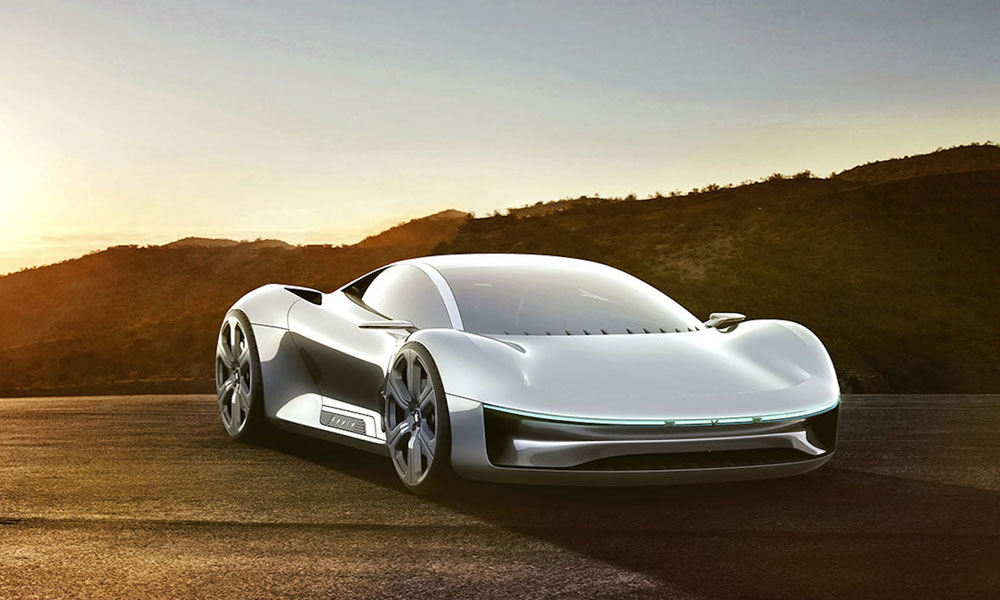The Apple Car Could Become a $50 Billion Business
 Credit: Alex Imnadze via Motor1
Credit: Alex Imnadze via Motor1Toggle Dark Mode
By now it’s no big secret that Apple is working on building a fully self-driving autonomous electric vehicle — a project that could quite possibly the world’s first, depending on whether Apple can beat its rivals to the punch — but now at least one analyst is weighing in how that could be a much bigger deal for Apple’s bottom line than you might suspect at first glance.
As much as it’s been working to change that over the past couple of years, there’s little doubt that Apple is still ultimately “the iPhone company” in terms of where most of its money comes from — while Apple’s iPhone revenue dropped below 50% of its overall earnings for the first time a couple of years ago, that was more of an aberration than the beginning of a trend, especially as it came in the quarter right before the launch of the iPhone 11, and more recently, the iPhone 12 accounted for almost 60% of Apple’s revenue in the last quarter.
Of course, that doesn’t mean that Apple isn’t actively preparing for the post-iPhone era; in particular, it’s been aggressively ramping up its services business, to the point where it’s now become the second-largest category, competing neck-and-neck with the iPad and Mac combined.
According to analysts, however, it’s the Apple Car that may ultimately be Apple’s “fifth column,” poised to someday topple the iPhone and set itself up as the company’s dominant product line.
In other words, Apple may someday be a car company.
‘Peak Technology Disruption’
In an investor note shared by AppleInsider Piper Sandler’s lead analyst Harsh Kumar notes that while there’s every indication that the Apple Car will start small, he predicts that it could easily generate $50 billion in revenue by 2030.
Overall, we think Apple entering the automotive market makes perfect sense. Similar to its other hardware offerings, the company can enter the market at a time of peak technology disruption while avoiding the risk of forming the market.
Harsh Kumar, Lead Analyst, Piper Sandler
Contrary to some suggestions that Apple could go for the much smaller opening move of partnering with another manufacturer to simply add its vehicle user interface, Kumar expects that Apple will want to make as big of an impact as possible with a “full-blown Apple-branded electric vehicle,” owning every aspect of the design.
This generally lines up with everything else we’ve been hearing in recent weeks; while Apple is clearly looking for an automotive partner — it’s reportedly had extensive talks with Hyundai and even brief talks with Nissan — the nature of these talks makes it clear that Apple is looking to make sure that it’s the company in the driver’s seat, with the expectation that automakers would simply provide the resources and infrastructure to produce the Apple Car.
Unfortunately, it’s this approach that’s making it difficult to find a willing partner, as none of the biggest automotive makers want to give up that much control. Hyundai’s executives spent much time agonizing over the potential partnership out of fear of losing their brand identity and being assimilated into the Apple collective, and this is why its talks with Nissan never even really began.
Still, assuming Apple manages to find a willing partner, most reports suggest that it wants to be ready to start churning out the first Apple Cars by late 2024. Based on several recent reports that Apple is aiming for an initial production run of 100,000 vehicles, Kumar predicts that could work out to about $5 billion in revenue for Apple in the first year alone, even by capturing a mere fraction of a percentage of the market.
However, due to the massive scope and scale of the automotive market, Kumar says that Apple would only have to capture a mere one percent of market penetration to grow to $50 billion in annual revenue — something he believes it could easily accomplish by 2030.
According to Kumar’s analysis, Apple also seems to have found the perfect sweet spot in terms of the timing for the Apple Car, since right now it’s “primed for technological innovation,” and there’s a good chance that with its resources Apple will be the company to redefine the automotive industry in the same way that it redefined the smartphone industry over 10 years ago.
In the end, however, it seems like Apple’s biggest challenge in producing the Apple Car isn’t going to be in engineering or artificial intelligence, but rather in simply finding somebody to actually build the thing in the first place.
While Apple is rumoured to be speaking with dozens of automakers, as we’ve already seen with both Hyundai and Nissan, none of them want to become “the Foxconn of the auto industry.”






